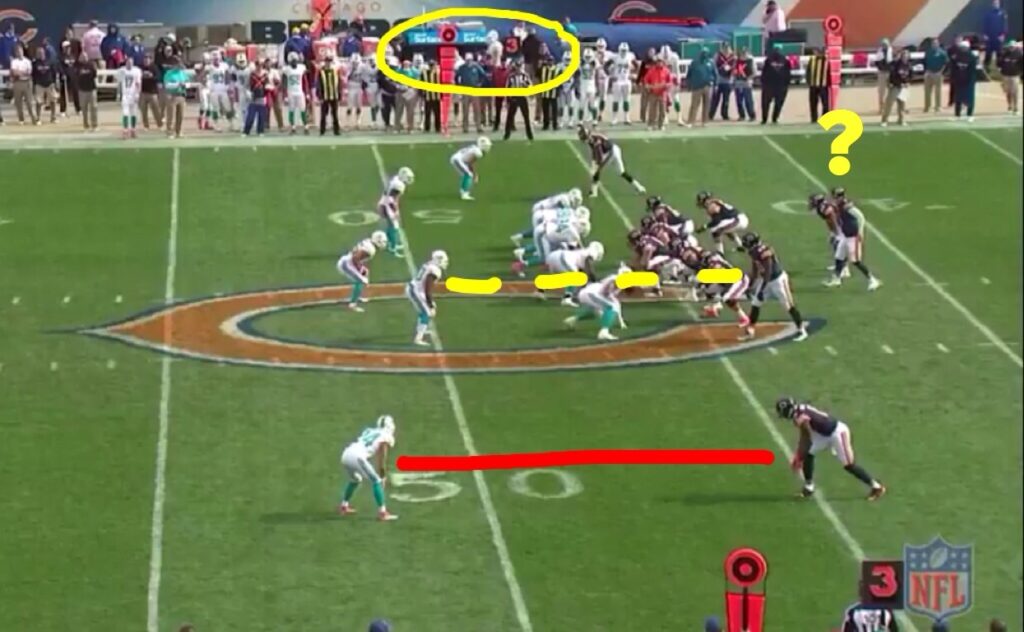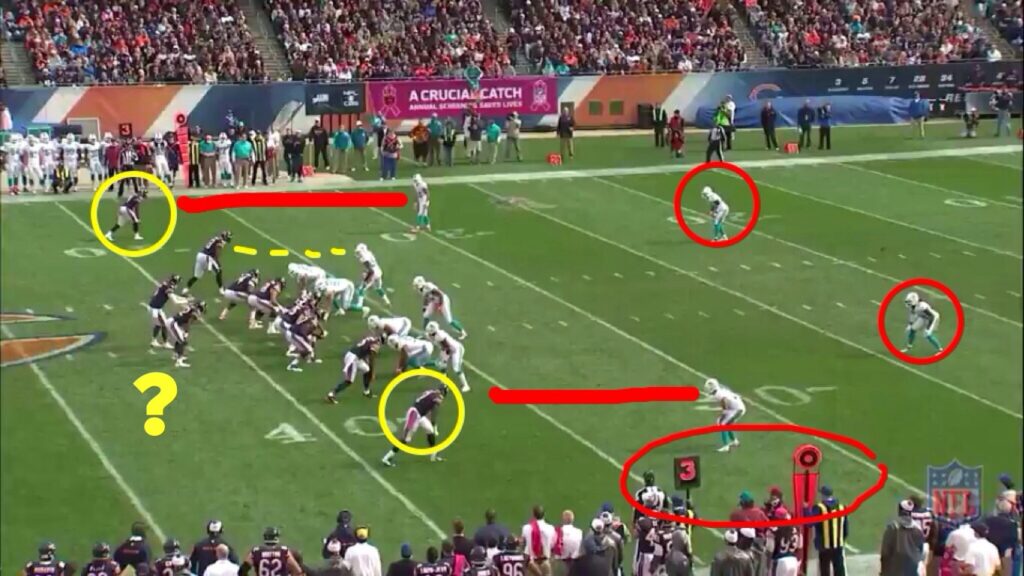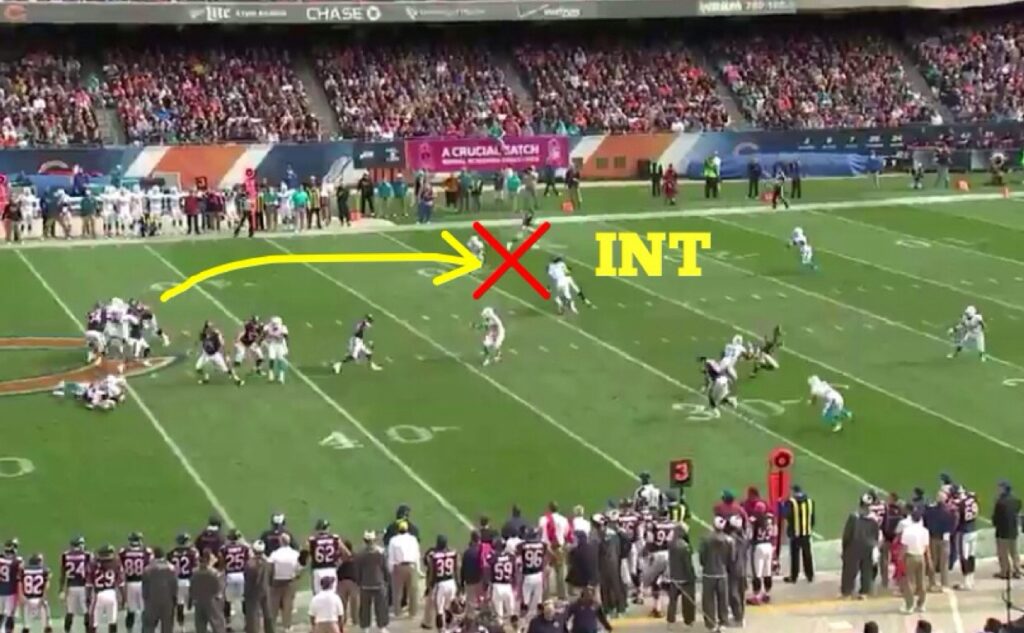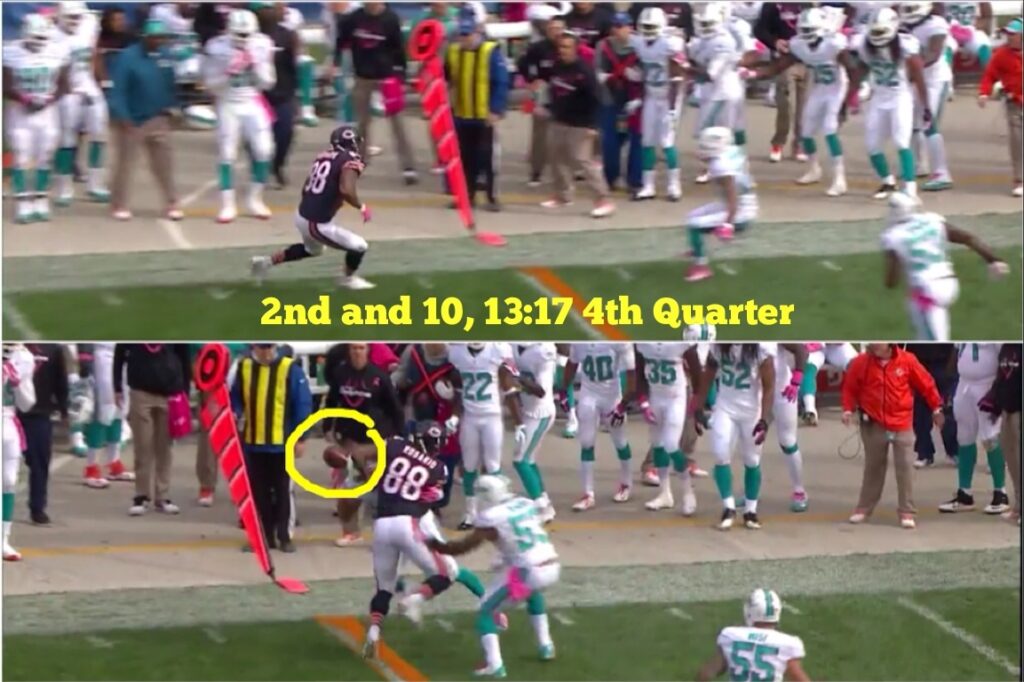When you come across the word “greed” in a sports column’s title, it’s only natural to start pondering contracts and all the non-game-related matters.
However, greed manifests itself in football as a lethal sin glaringly evident on the field.
Once you press play and delve into the footage, the amount Jay Cutler earns in his paycheck (or what his former teammate, Brian Urlacher, opines about it) becomes inconsequential.
Greed isn’t counted in monetary units within the game; it’s measured by the choices made between those painted lines.
The essence is this, ladies and gentlemen: greed in football, for lack of a more fitting term, is detrimental. Greed is misguided; it simply doesn’t pan out.
And make no mistake, mark my words; greed will drag down the Chicago Bears offense and any other sputtering offense in the NFL. Thank you very much.
The Chicago Bears, with a current record of 3-4, have yet to breach the 30-point threshold in any game this season, spanning seven matchups.
Granted, football isn’t solely about achieving a specific point total—that’s not the primary objective.
Nonetheless, the relatively restrained performance from an exceptionally potent offense just a year prior, boasting essentially the same roster, is undeniably baffling.
To be fair, drawing an exact comparison isn’t entirely equitable, as last year’s achievements were against distinct opponents with different defensive setups.
At this point last year, the Bears had surpassed the 30-point mark on four occasions.
Diving into specifics, in the four losses the Bears have incurred this season, they’ve managed to average a mere 19.5 points.
The prevailing critique of this Bears outfit was that they had lost the famed “Monsters of the Midway” persona, transitioning into an offensive-oriented team under Coach Marc Trestman, albeit lacking the intimidating defense traditionally linked with Bears squads.
The once reliable 30-point benchmark has now regressed to a sub-20 level in games where the need for points is most pressing. It’s a head-scratcher, without a doubt.
When examining the Chicago Bears offense on tape, the reason they haven’t lived up to the juggernaut reputation many anticipated boils down to avaricious decision-making on the field.
Let’s delve into:
In this initial frame (below), taken from the Bears’ recent loss to the Miami Dolphins, we find ourselves amid the first offensive series for the Bears, specifically their third play of the game.
All the necessary elements align in this snapshot for a straightforward conversion for the Bears. It’s 3rd and 1 (or an exceedingly manageable 3rd down situation).
The Bears exhibit a marked preference for the shotgun formation with Jay Cutler.
Before we entirely attribute any ‘issues’ to their offensive line play, it’s crucial to recognize that this offensive line is frequently tasked with pass protection duties due to Cutler’s stance in the shotgun, without a significant number of conventional under-center runs to keep pass rushers, such as Cameron Wake in this instance, on their toes.
The towering Bears wide receiver, Brandon Marshall (at the bottom), faces off-coverage from his defender—a clear opportunity for a swift pass of some variety.
Meanwhile, Bears tight end Martellus Bennett (indicated by the yellow dotted line) has garnered coverage from an off-the-ball linebacker, positioned head-to-head.
This scenario presents an excellent presnap read for a short, outward-breaking route to the tight end, away from a defense compressed in the middle of the field—a notably viable alternative for conversion.

Given the ideal circumstances for success, what course of action do the Bears choose?
Naturally, they opt for an unsuccessful deep fade to the right sideline, targeting Alshon Jeffery (pictured below). Huh?
The reasoning? Well, you know, greed.

When dissecting an offense to identify its shortcomings, the foremost question is, “Are they capitalizing on the opportunities presented to them?”
When the answer is a resounding no, discussions regarding off-field matters or personnel needs become utterly futile.
On the football field, greed means neglecting what’s readily available and craving more than what’s realistically attainable.
Always “wanting a pony” will lead to defeat in the NFL. In the prior sequence, which had significantly emphasized the Bears’ offense, they faltered with a three-and-out in the opening series solely due to their ill-advised decision-making.
In the subsequent frame (below), we encounter a strikingly similar scenario.
The Bears have adeptly maneuvered to a 3rd and short situation but remain fixated on their preference for the shotgun formation.
Both defensive backs grant off-coverage to the extended wide receivers, while two safeties maintain a deep-field presence.
The tight end positioned at the top of the screen again contends with an inside-matching defender (indicated by the dotted line).
This signifies that short, outward-breaking routes for conversion are readily accessible based on leverage.
In essence, this Bears offense has three viable presnap options for a highly achievable first down, none of which necessitate a short run.

Yet, their choice was to hurl an interception downfield into a coverage scheme that was clearly baiting them, all due to… well, you guessed it, greed.
Considering the wealth of presnap intel available to the Bears, coupled with their array of offensive weapons, that interception was utterly perplexing.
Yes, it defies belief—mind-bottling, if you will.

However, the desire for more doesn’t solely emanate from the play-calling or decisions made by the quarterback or coordinator.
In football, greed can also surface from the ball carriers themselves. The following frame illustrates the second play of a pivotal 4th quarter drive (as they tend to be).
It concluded prematurely, spanning only two plays, because rather than securing the necessary yardage for the conversion, which could have been achieved by a simple trip and fall forward, the runner opted for an ambitious juke while standing upright.
This choice left the ball vulnerable, resulting in a fumble.
Labeling it as ‘greed’ might seem severe; after all, everyone makes mistakes.
However, when the error could have been avoided by simply accepting what was readily available, it left a mark on the offense, casting doubt on its ability to perform as expected.

The Bears resemble a dog with a history of biting, although it’s been a while since it last happened.
As an opponent, you certainly don’t want to be caught napping only to wake up covered in barbecue sauce, rousing the dormant beast.
If Chicago can cease their imprudent play, one must acknowledge the potential challenges they could present.
The offensive lineup for the Bears boasts an abundance of talent.
Yet, as it stands, a kind of football desire hinders that talent from translating into notable statistics on the scoreboard.

